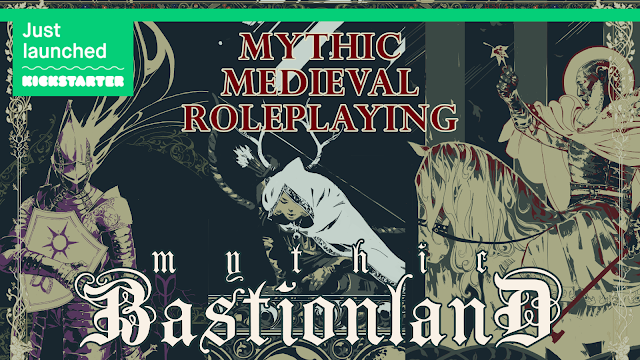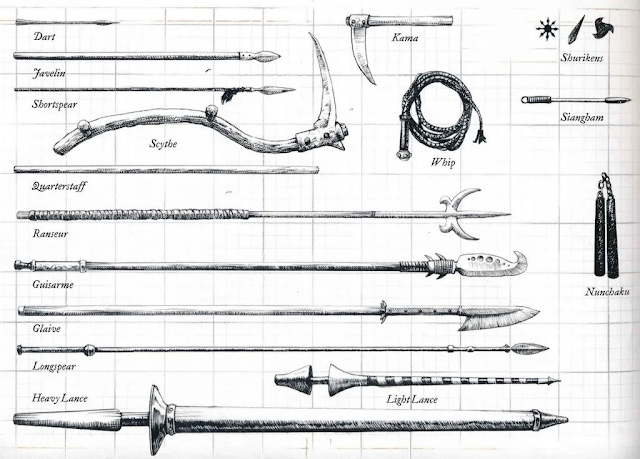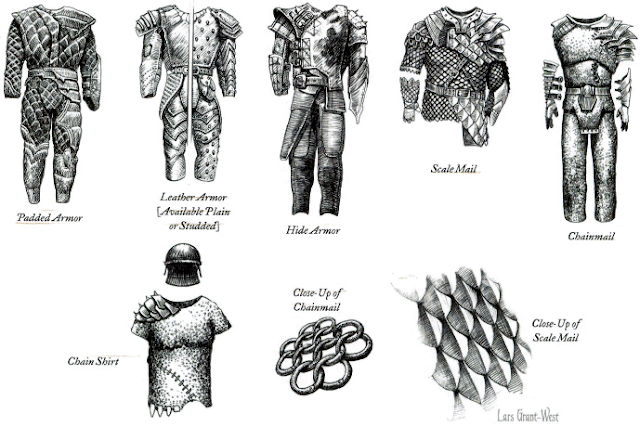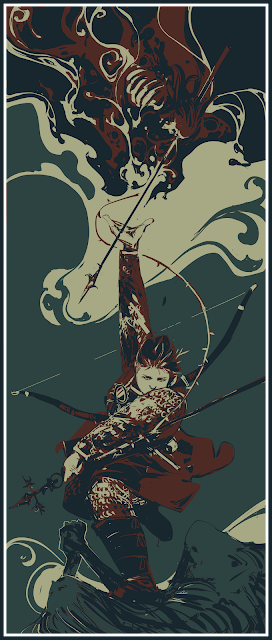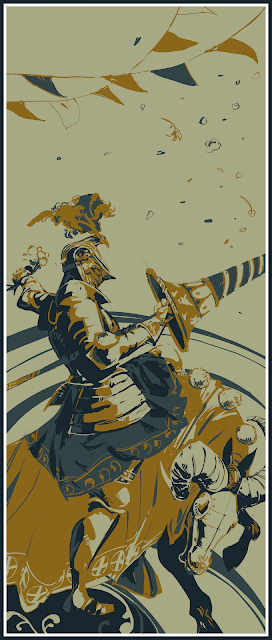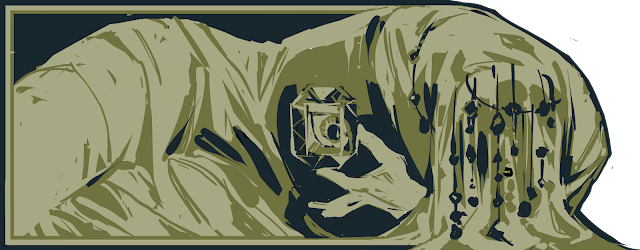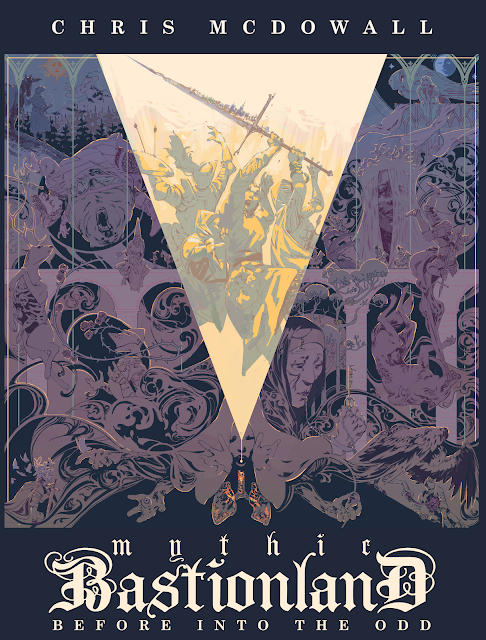Mythic Bastionland is largely a game about travelling. How does that work?
PLAY
The Company are part way through a journey between two
distant holdings. Ref points to their current Hex location on the map.
Ref: Okay, you wake up and clear away the camp. It’s…
Ref makes a few rolls on the Nature Spark Tables for Sky and
Weather.
Ref: There’s a pale haze in the air, not enough to really
hinder your view, but gives a slight fuzz to the forested mountains in the
distance. There’s a dull humidity in the air, no breeze at all, a contrast to
yesterday’s bitter storm!
Moss: Yeah, sounds better to me.
Tal: So we keep going, right?
Tal gestures to their final destination on the map, then
to the next Hex in that direction.
Tal: Head over there, I think. Wait, can we see anything
around us?
Ref: Sure, you camped on a decent vantage point, so you got
a good look at your surroundings. You can see this Hex is mostly rolling hills,
a few patchy forests.
Ref points to the Hex Tal had indicated as their next
destination.
Tal: In that direction it looks much the same, no sign of
any real points of interest.
On their own map, Ref sees that a different adjacent Hex
has a Monument landmark. In their notes this is an “Eternal Hearth”.
Ref: Over to the West you can see there’s some sort of
structure in amongst the hills, a little smoke rising from it.
Moss: Ah… we could go and get some proper rest over there.
It’s kind of out of our way, though.
Tal: Yeah… we’re in good condition, though. Maybe let’s just
mark it on our map for now and check it out another time.
Moss: Okay, works for me.
THOUGHTS
Focusing on long distance travel calls for a sort of “zoomed
out” approach that can be daunting in comparison to the more moment-by-moment
play of exploration and combat.
Here I like that Ref takes a moment to set the scene beyond
just the paper map in front of them. Even seemingly inconsequential weather and
sky descriptions help to paint the scene of the Knights travelling across great
distances and significant passages of time, and give some evocative sensory
context in comparison to the relatively abstract Hex map.
The Spark Tables are a great source for this, and I always
keep them to hand when running the game.
Ref also ensures the players have the information needed to
make interesting choices. In particular, telling them that they can see
something in a neighbouring Hex, but not outright stating what it is. Now they
face a choice between continuing to their destination or taking a detour to a
potentially useful location.
There’s also a good amount of generosity on display here.
Ref states that there’s a haze in the air, but not enough to obscure the
Knights view. They also assume that the Knights set up camp on a vantage point,
allowing them to easily survey their surroundings. I’d always lean in this
direction, but I absolutely wouldn’t hesitate to make the Knights’ lives
difficult when the dice prompt it.
For example, if the weather roll was “Solid Fog” then I
think it’s entirely appropriate to say that the Knights can’t see into their
neighbouring hexes, perhaps even needing to travel blind unless they have a way
to maintain their course.
----------------------------------------------------------------------------
This post was originally sent as a reward to all Patreon supporters, and is released freely on this site the week after its original publication.
If you want to support my blog, podcasts, and video content then head over to my Patreon.





